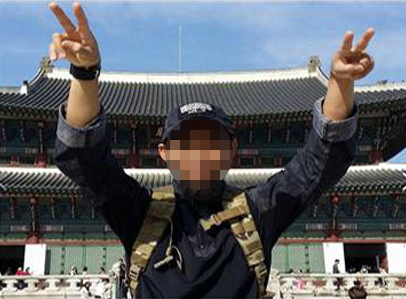Kijun Times
Kijun Times 는 교내 영어잡지,신문 동아리로 다양한 주제에 관한 이슈로 원고를 작성하며 영어 잡지를 만드는 동아리입니다.
매년 잡지 출판뿐만 아니라 자신의 진로와 관련된 개인기사, 모둠기사를 작성함으로써 영어 실력향상은 물론 주제에 제한이 없기 때문에 다양한 진로에 접목 가능합니다.
We are looking for a new journalist for The KIJUN TIMES.
Anyone can be a journalist for The KIJUN TIMES.

Muslims in Korea fear backlash after Paris attacks |
|||||||
|---|---|---|---|---|---|---|---|
| 이름 | 장한빛 | 등록일 | 15.11.20 | 조회수 | 639 | ||
|
In the wake of last week’s deadly attacks in Paris and the arrest of an Indonesian migrant here on Wednesday over alleged links with an international terrorist group, Muslims and experts here expressed concerns over the potential spread of anti-Islamic sentiment. The police arrested the 32-year-old Indonesian migrant worker suspected of supporting international terrorist group Nusra Front, an affiliate of al-Qaida. The NIS also announced that it had found 10 South Koreans who publicly expressed support for the Islamic State, the group thought to be behind the terrorist attacks in Paris, and deported 48 foreigners suspected of supporting terrorist groups since 2010.
After the news went viral, some netizens raised alarms over “potential” terrorists here, calling for stepped-up readiness to combat security threats. Kim Ji-won, a 21-year-old university student based in Seoul, said she had witnessed a group of high school students wrongly accusing Muslims on the street following the Paris attack. “A group of high school students called my Malaysian friend in hijab ‘terror’ on the street,” Kim said. “I am worried that this tension heightens Islamophobia here.” Shekh Almamun, a Bangladeshi migrant worker rights activist and Muslim living in Korea, told The Korea Herald that he had been closely browsing Korean newspapers and comments online. “I was shocked to see some online comments saying that all Muslims here should be kicked out,” he said. “I hope the Korean government and Koreans do not mistake all the Muslim migrant workers as members of the Islamic State.” “We are just ordinary people working and living here who equally despise atrocities committed by a few extremists against innocent people in Paris,” he said. “The Islamic State does not represent all the Muslims. What the group does is far from what Muslims believe.” The Bangladeshi man was also worried that growing anti-Muslim sentiment would lead to what he called wrong crackdowns by the government on migrant workers here in the name of security. An expert on the Middle East also pointed out the panic over terror attacks and Islamophobia are understandable, but would not help the country in diplomatic or economic respects. “The paradigm of the attacks by the Islamic State has changed. It broke into ordinary places, like cafes, concert halls. South Korea cannot be an exception to the terror attacks,” said Lee Hee-soo, cultural anthropology professor at Hanyang University. South Korea has been included on the list of 62 nations taking part in the air strikes in Syria and Iraq, which the Islamic State vowed to attack as a part of its “crusader campaign.” “But South Korea has always been on good terms with Islamic countries. We should join the international fight against terrorism, but refrain from blindly looking at the Islamic part of the world from Western perspectives,” he added. “It would be a mistake to turn back on Muslims because of a few extremists as we are importing the majority of our energy from the Middle East and the Islamic world is generally favorable to Korea, thanks to Korean pop culture,” he said. “The unnecessarily mounting Islamophobia could make the society unstable and more fragile to the terror attacks,” he said. “The country should not draw attention from the radical group.” “As a middle power, the country should rather try to employ balanced tactics and tackle the extreme conflicts based on humanitarian standards,” he said. Kim Seong-in, a refugee rights activist of advocacy group NACEN, also expressed worries over asylum seekers, many of whom are coming from war-stricken Syria and seeking shelter here. “The growing hatred toward the Islamic world would likely take a toll on the prospects for the rising number of Muslim asylum seekers here,” he told The Korea Herald. “I agree with the need for enhanced security controls, but it should not close its door to those in need of help. “By doing so, Korea would only lay bare its weak and fragile tolerance toward the outside world.” In response to the growing fear, the rival parties are scrambling to pass the antiterrorism bill to allow the security agency to have more authorities to identify and investigate those suspected of being linked to terror groups. The government will also spend an extra 100 billion won ($86 million) on countermeasures against possible terrorist attacks next year and ramp up immigration controls. By Ock Hyun-ju (laeticia.ock@heraldcorp.com) |
|||||||
| 이전글 | Korea beats Japan in Tokyo baseball |
|---|---|
| 다음글 | BOK chief says Korean economy stays strong despite uncertainties |
